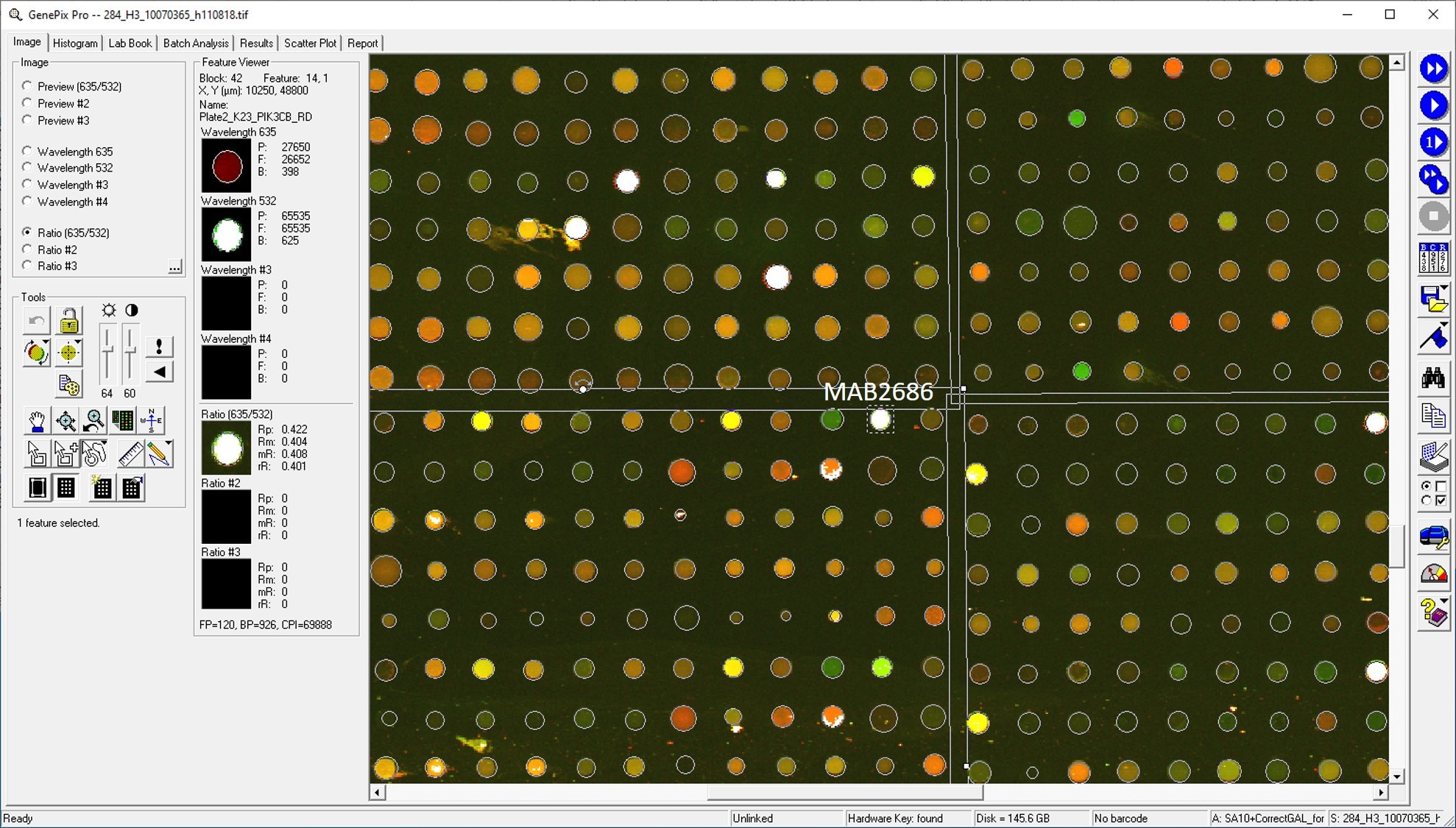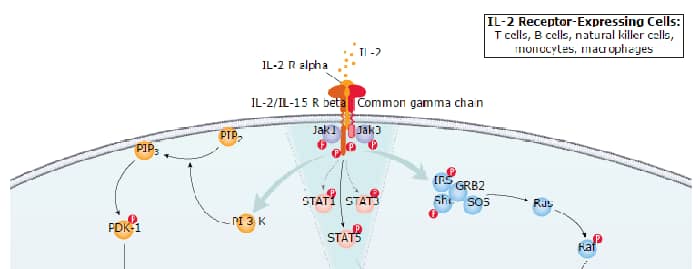Human PI 3-Kinase p110 beta Antibody Summary
Met152-Val349
Accession # P42338
Applications
Please Note: Optimal dilutions should be determined by each laboratory for each application. General Protocols are available in the Technical Information section on our website.
Scientific Data
 View Larger
View Larger
Detection of Human PI 3-Kinase p110 beta by Western Blot. Western blot shows lysates of A431 human epithelial carcinoma cell line and Jurkat human acute T cell leukemia cell line. PVDF membrane was probed with 1 µg/mL of Human PI 3-Kinase p110 beta Monoclonal Antibody (Catalog # MAB2686) followed by HRP-conjugated Anti-Mouse IgG Secondary Antibody (Catalog # HAF007). A specific band was detected for PI 3-Kinase p110 beta at approximately 110 kDa (as indicated). This experiment was conducted using Immunoblot Buffer Group 1.
Reconstitution Calculator
Preparation and Storage
- 12 months from date of receipt, -20 to -70 °C as supplied.
- 1 month, 2 to 8 °C under sterile conditions after reconstitution.
- 6 months, -20 to -70 °C under sterile conditions after reconstitution.
Background: PI 3-Kinase p110 beta
Class IA phosphoinositide 3-kinases (PI 3-kinases) are a family of p85/p110 heterodimeric lipid kinases that function as signal transducers downstream of growth factor receptors, mainly receptor tyrosine kinases. Mammals express three class IA catalytic subunits: p110 alpha, p110 beta, and p110δ. Reports suggest that the p110 beta subunit may have special importance in promoting cell proliferation.
Product Datasheets
Citations for Human PI 3-Kinase p110 beta Antibody
R&D Systems personnel manually curate a database that contains references using R&D Systems products. The data collected includes not only links to publications in PubMed, but also provides information about sample types, species, and experimental conditions.
5
Citations: Showing 1 - 5
Filter your results:
Filter by:
-
Antiproliferative and pro‑apoptotic effects of Cyclocarya�paliurus polysaccharide and X‑ray irradiation combination on SW480 colorectal cancer cells
Authors: Yongjun Jin, Zhezhu Jin, Sanya Jiang
Molecular Medicine Reports
-
MicroRNA‑214 suppresses the viability, migration and invasion of human colorectal carcinoma cells via targeting transglutaminase 2
Authors: Huiguo Shan, Xuefeng Zhou, Chuanjun Chen
Molecular Medicine Reports
-
Bacterial Antigens Reduced the Inhibition Effect of Capsaicin on Cal 27 Oral Cancer Cell Proliferation
Authors: R Chakrabort, K Vickery, C Darido, S Ranganatha, H Hu
International Journal of Molecular Sciences, 2021-08-12;22(16):.
Species: Human
Sample Types: Cell Lysates
Applications: Western Blot -
The PI3K subunits, P110&alpha and P110&beta are potential targets for overcoming P-gp and BCRP-mediated MDR in cancer
Authors: L Zhang, Y Li, Q Wang, Z Chen, X Li, Z Wu, C Hu, D Liao, W Zhang, ZS Chen
Mol. Cancer, 2020-01-17;19(1):10.
Species: Human
Sample Types: Whole Cells
Applications: ICC -
Nuclear factor-kappaB decoy oligodeoxynucleotides ameliorate impaired glucose tolerance and insulin resistance in mice with cecal ligation and puncture-induced sepsis.
Authors: Matsuda N, Yamamoto S, Yokoo H, Tobe K, Hattori Y
Crit. Care Med., 2009-10-01;37(10):2791-9.
Species: Mouse
Sample Types: Tissue Homogenates
Applications: Western Blot
FAQs
No product specific FAQs exist for this product, however you may
View all Antibody FAQsReviews for Human PI 3-Kinase p110 beta Antibody
Average Rating: 4 (Based on 3 Reviews)
Have you used Human PI 3-Kinase p110 beta Antibody?
Submit a review and receive an Amazon gift card.
$25/€18/£15/$25CAN/¥75 Yuan/¥2500 Yen for a review with an image
$10/€7/£6/$10 CAD/¥70 Yuan/¥1110 Yen for a review without an image
Filter by:
Antibody was printed on custom arrays and incubated with fluorescently labeled human EDTA plasma


















